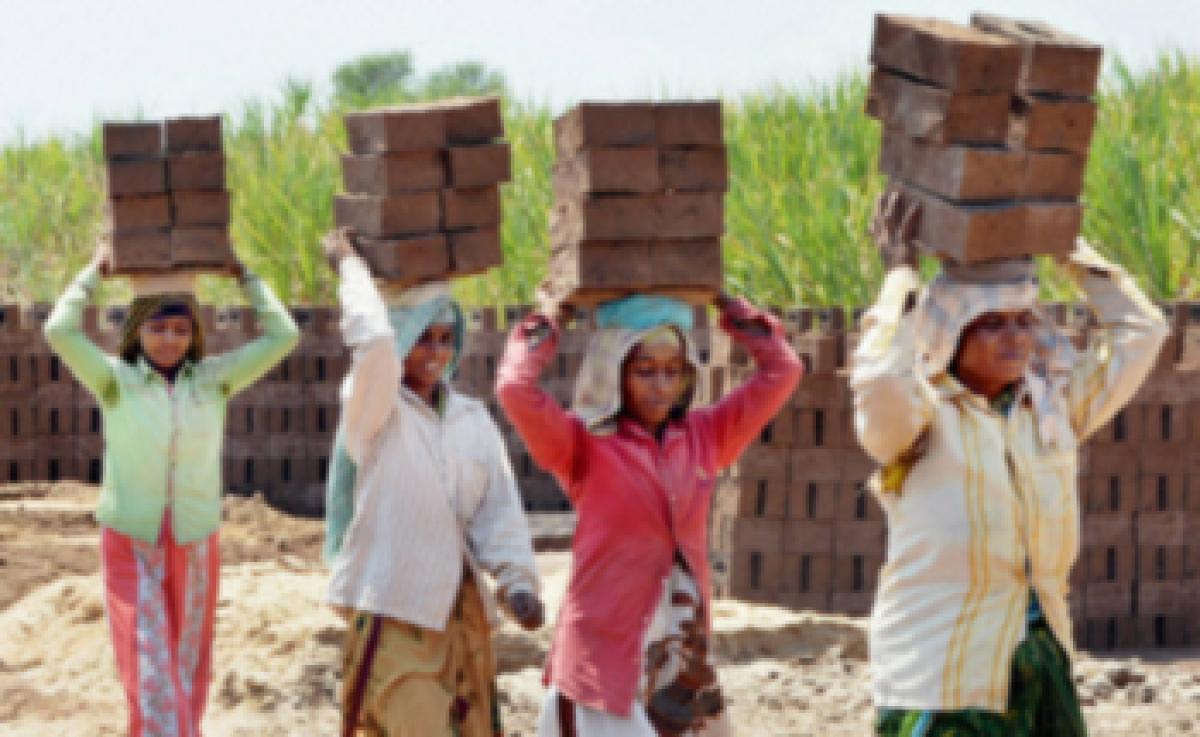Live
- Pawan Kalyan calls for public participation in Swachh Andhra
- TGCHE, APSCHE explore collaborations
- Flamingo fest off to a flying start
- PM distributes 65 lakh Svamitva property cards
- CCTV cams, new tech can rein in bank robberies, thefts: Rachakonda top cop
- DGP rolls out innovative concept to shore up policing
- ACB grills Greenko arm reps in Formula E Car Race case
- Govt will come up with ‘Affordable Housing Policy’ soon: Minister Ponguleti
- ‘NTR-A revolution beyond a name’
- OU team to take part in Botany Festival in Guj
Just In

Domestic work is not considered as productive and is neglected in policy, leaving the women at a severe disadvantage, said the report by the Centre for Equity Studies in New Delhi.
Mumbai: Women are among the most excluded groups in India, with almost 43 per cent of working-age women confined to domestic work, while many who do work outside the home face exploitation and low pay, according to the India Exclusion Report. Despite rising levels of literacy, the proportion of working-age women in India's formal labour force is only about 27 % compared with almost 60 per cent in Britain and the US, World Bank data shows.
Domestic work is not considered as productive and is neglected in policy, leaving the women at a severe disadvantage, said the report by the Centre for Equity Studies in New Delhi.
Besides cooking, cleaning and caring for children and elderly family members, women also perform unpaid work in family businesses and low-paid labour in factories and enterprises in the so-called informal sector, where they are discriminated against and paid less than men.
"Social status and poverty intersect to make women from historically marginalised groups especially vulnerable to exploitative labour arrangements, forcing them to provide cheap labour," wrote the authors led by social worker Harsh Mander.
"With women in conditions akin to bondage, factors such as confinement of workers engaged in this work in homes or hostels, and the mediation of the employment relationship through the male head of the household for instance, in brick kilns and quarries further serve to render women invisible."
Women in India do almost 10 times as much unpaid work as men a much higher ratio than the global average leaving them out of the formal workforce and unable to contribute to the economy, consultancy firm McKinsey said in a report last year. If that work were to be valued and compensated in the same way as paid work, it would contribute $300 billion a year to India's economic output, it said.
Women are also denied equal access to services including education, health care, housing and public transport. Single women and so-called Devadasis, girls who are forced into sex work from the time they reach puberty, are among the most vulnerable, the 2015 Exclusion Report said. Sex workers and women in hazardous occupations such as construction and mining are routinely discriminated against. Lower-caste Dalit women who are forced to clean up excrement from dry toilets and open drains, face threats of violence, eviction and withholding of wages if they try to give up the practice.
Thomson Reuters Foundation

© 2025 Hyderabad Media House Limited/The Hans India. All rights reserved. Powered by hocalwire.com







